March 8th marks International Women’s Day around the world, and this month is Women’s History Month in the UK, US and Australia – so we’ve been reflecting on the remarkable stories of female resilience and achievement that we have uncovered or researched over the years.
Tracing women in genealogical records is a challenge for historians and genealogists. For centuries, recording the details of the lives of women, who were generally not property owners or wage earners, was deemed inconsequential and women’s identities were inextricably linked to those of their fathers or husbands. So when we are able to shed light on our clients’ female ancestors, thanks to either clues in oral histories passed down through the generations or finding unique records, we relish the opportunity to pay tribute to them. These are a few of the highlights:
A visionary businesswoman
One of our clients’ ancestors was left a widow in mid-19th century France, saddled with her late husband’s extensive debts and floundering hotels. She demonstrated extraordinary tenacity and business acumen, negotiating with the banks herself, managing the hotels, paying off the debts and purchasing new properties. At a time when French women did not have the right to vote, she was a pioneer in the hotel industry and built a lucrative real estate empire, which she bequeathed to her descendants, including a hotel that is still in the family today. Poring through contemporaneous newspapers and legal documents, we were able to fill in the gaps in the family lore about this trailblazing ancestor.
The Women’s Army Corps
Women of the Women’s Army Corps
When the US entered World War II, two sisters in one of our clients’ family tree put their skills as Vaudeville performers to use. Among the 150,000 women to join the Women’s Army Corps, the sisters served their country by performing in shows to keep up the troops’ morale. WACs were employed as switchboard operators, mechanics, bakers and in other essential noncombat positions, marking the first time that women, besides nurses, served within the US Army’s ranks. The two sisters also worked as drivers and riveters at Philadelphia’s Naval Shipyard.
A single mother in south-west Scotland
We frequently research historical stories of single motherhood and illegitimacy – one such story took us to Scotland in the 1850s, when women who had illegitimate children were asked to stand before a local church court and divulge the circumstances of their pregnancy in painstaking detail in order for the church to pursue the children’s reputed fathers for child support. The minutes from these harrowing sessions, known as “bastardy records,” have survived and are very useful to researchers. We used them to learn more about our client’s ancestor’s life working and raising her illegitimate son alone – and to crack the case of his mysterious parentage.
Women in higher education
Today, women outnumber men in higher education, but this is a relatively recent development. American women were not even allowed to study at university until 1837, when Oberlin College – founded by one of our clients’ ancestors – opened its doors to female students. Meanwhile, women were admitted to university in the UK for the first time in 1868. Despite the emergence of women’s colleges and institutions, higher education remained largely dominated by men for most of the 20th century, during which time many of our clients’ ancestors were the first women in their families to attend university.
A member of the United Partisan Organization
The strong focus on preserving eyewitness accounts and oral histories in Holocaust research recently enabled us to discover the incredible story of a young Jewish woman in our client’s family tree. She was part of the underground resistance organization operating in the Vilnius ghetto, known as FPO (which stood for Fareynikte Partizaner Organizatsye: the United Partisan Organization). She was 21 years old at the time. The first organized Jewish resistance of its kind in Nazi-occupied Europe, its members went on to aid the Soviet army’s liberation of Vilnius in 1944.
Members of the FPO
Women’s charity case studies
Thinking about the barriers our research team often faces tracing women's stories, our work with UK and women's charities has been hugely insightful. A wave of philanthropy in 19th century Britain saw numerous organizations spring up to fundraise for women who had 'fallen on hard times'. We studied hundreds of historical case files for these projects, each detailing unique stories of women facing poverty, illness, working as carers or living as single mothers. This was a fascinating departure from, say, census records, that often contain very little information about women without 'official' occupations.
***
This month is a reminder of why we go the extra mile to preserve stories of female ancestors in as much detail as they deserve. What’s more, we’re proud to be a majority female company: watch our International Women’s Day discussion on how we maintain a supportive working environment, and our reflections on working as women in the media industry.



